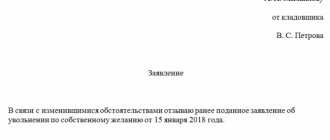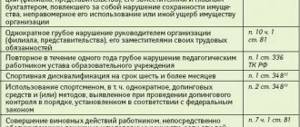Photo from knightlife.paceacademy.org Does the company need to retain employees and, if so, how to do it. Alla Isaeva, a consulting partner, shared her opinion.
— Let’s imagine that a company lives in a conservative corporate culture, subject to a rigid hierarchy. The superior boss decides everything, including issues of dismissal.
Alla Isaeva Consulting partner
Leaving such a company on your own initiative, at best, is possible only after the contract expires. To this day, this “retention” model is viable in many companies. But I note that the attractiveness of such employers for candidates has been sharply decreasing recently and it is becoming increasingly difficult for them to attract new employees.
But managers of a more democratic management culture, where the relationship between employer and employee is built on the principle of “working with” rather than “working for,” is also puzzled by the issue of employee retention.
Imagine that an employee announces his desire to leave the company. This news is most likely unexpected for you. And in this case, it is necessary to make a decision quickly.
The expert tells
Expert: Elena Vladimirovna Gudina is an independent lawyer, an expert practitioner in working with crises, more than 22 years of work as a lawyer, attorney, and head of the legal department.
When hiring an employee, hardly anyone thinks about how they will fire him. We always hope for the best. A new person has come, he will work well, he will restore order in the department, in the area entrusted to him. But sometimes it doesn’t work out very well. And there may be a desire to say goodbye to him - it all depends on the intensity of emotions and reciprocity.
Sometimes the employee himself realizes that the place is not his, he needs to look for another, and leaves on his own. And there are cases when a person is satisfied with everything, but does not care about the results of his work. Why try if everything is so good: salaries are paid, the regime suits you, the team is normal. The director is dissatisfied - that’s why he’s the boss, to “educate.” What should the manager of such a subordinate do? Is it possible to fire him without his consent?
We are looking for legal ways
The Labor Code of the Russian Federation allows this. The legislation provides for a whole list of grounds for termination of employment relations at the initiative of the employer. It is specified in Art. 81 Labor Code of the Russian Federation.
Source: freepik.com/unitonevector
You can dismiss an employee without his consent only strictly on the listed conditions; nothing else can be thought of. You will need to solve a problem like this, matching it to the answer in the textbook.
Position mismatch
Inconsistency with a position should be understood as the employee’s lack of competencies, knowledge, and experience necessary for his position. Is it possible to dismiss an employee without his consent if he does not suit the employer professionally? It is described in parts 2 and 3 of Art. 81 Labor Code of the Russian Federation. To formalize dismissal on this basis, a simple opinion of the manager about the employee’s competencies is not enough. Before terminating the contract, you must:
- Conduct a commission certification of a citizen and, with its help, make an objective verdict on the suitability or non-compliance of his position. Certification is carried out with the participation of the company's trade union body.
- If an employee is found not to be suitable for the position, he should be offered another position available in the company for which he is suitable.
- Only if there are no vacant suitable positions in the organization or if the employee has officially refused the employer’s offer, dismissal for lack of suitability is allowed.
Read more: How to fire an employee who does not meet qualification requirements
Reduction
Carried out in connection with a decrease in the number or staff of the enterprise. But this option must be calculated very carefully. In practice, it gives rise to many disputes and objections, and is most often challenged in court. After all, if you plan to say goodbye to one specialist out of three who do the same work, you will need to justify which of them has the advantage to stay.
Although the Labor Code of the Russian Federation (Article 179) stipulates that the director can choose a subordinate with higher labor productivity and qualifications, this also needs to be confirmed by objective data.
But if you approach the process thoughtfully not only from the legal, but also from the psychological side, the reduction can be carried out painlessly.
Example from the editor! A small publication was able to part with its subordinates on good terms. Due to economic difficulties, it was forced to cut half of its staff. For dismissed employees, the manager helped them create a resume, gave personal recommendations, and invited a career consultant to build a strategy for each person for further job search or retraining.
There are benefits for families if they have 2 or more dependents. The Labor Code includes among them disabled family members who are fully supported by the employee or who receive assistance from him, which is their constant and main source of livelihood.
The law also protects against dismissal for this reason:
- persons in whose family there are no other breadwinners with independent income;
- received a work injury or occupational disease from this employer;
- disabled combat veterans;
- improving their qualifications in the direction of management.
Dismissals for these two reasons are the most “expensive” and labor-intensive for the employer. After all, the entire procedure must be carried out in accordance with the law (notify about layoffs, offer other positions, notify government agencies, etc.). All requirements must be met exactly, otherwise all actions will be considered illegal.
At the same time, the staff is paid 2–3 average monthly salaries. If you take into account the notice period (2 months before dismissal), you will have to calculate the salary for these 2 months as well. Therefore, the employees themselves want to be fired in the event of a conflict with management precisely due to a reduction in numbers or staff.
Low qualification
The Labor Code of the Russian Federation provides that, by decision of the employer, it is possible to dismiss an employee due to inadequacy of the position held or the work performed due to insufficient qualifications, confirmed by certification results.
In practice, this is more common in government agencies or institutions.
Photo: re-certifications are constantly carried out there to confirm the professionalism of employees. Source: freepik.com/unitonevector
I have not seen such cases in commercial enterprises. The procedure itself is very cumbersome; it must be carried out correctly in order to say goodbye to a subordinate on this basis. Employees usually challenge such dismissals in court.
The Labor Code of the Russian Federation also contains instructions that dismissal due to reduction or non-compliance is permitted if the employee cannot be transferred to another position with his consent. This can be either equal or lower qualification work. The main thing is that the subordinate can perform it due to the state of his health.
It turns out that when such situations arise, the entrepreneur must offer the employee all available vacancies of equal or lower qualifications. And if he does not agree to switch to them, only then can he be fired.
“For one year (starting from the date of dismissal), a person who has been laid off has a preferential right to return to work.
This means that if during this period there are vacancies in the company that meet the qualification level of the laid-off employee, the employer is obliged to rehire him. Therefore, the management of the number of enterprises must be approached very carefully, not only during the period of reduction, but also within a year after completion of the optimization process” Victoria Smykovskaya. Source: HR Manager magazine
Failure to fulfill duties
This basis is used when a subordinate repeatedly fails to perform work without good reason, when he has a disciplinary sanction.
Photo: this is the most painless and easiest way for an employer to get rid of a careless employee. Source: freepik.com/unitonevector
It is important to carry out the procedure correctly and fulfill all the conditions for bringing to disciplinary liability. And there must be at least two punishments.
According to Art. 192 of the Labor Code of the Russian Federation, there are three types: reprimand, reprimand and dismissal on appropriate grounds. It is important to remember that violation of the procedure for at least one sanction may result in the employee being reinstated at work through the courts. Therefore, I advise imposing 2 penalties, and dismissing for the third.
Timing also matters. If there has been no new disciplinary punishment within a year, the employee is considered not to have received it. In my practice, the courts recognized such dismissals as legal.
For what reasons can you fire an employee?
In this section, we will consider the reasons for the dismissal of an employee at the initiative of the employer, since dismissal of one’s own free will, by agreement of the parties and other general grounds is less, let’s say, painfully perceived than dismissal by the employer.
So, an employer can fire an employee for the following reasons:
- if the organization is liquidated or the individual entrepreneur ceases its activities
- in case of reduction in the number or staff of employees
- if the employee does not correspond to the position he occupies or the work performed due to insufficient qualifications
- in the event of a change in the owner of the organization’s property, but this applies to managers, deputy and chief accountant
- dismissal for systematically being late for work
- when an employee repeatedly fails to fulfill his duties in the absence of any valid reasons and has disciplinary sanctions
- if the employee grossly violated his job duties at least once
- dismissal for absenteeism. Employers always want to use this reason for dismissal when they are not satisfied with the employee, but they cannot find other legal grounds for dismissal.
- if an employee shows up at work drunk, under the influence of drugs or intoxicated
- for disclosing secrets that are protected by law
- for other reasons, which are specified, including in Art. 81 Labor Code of the Russian Federation
Violation of labor discipline
Actions for which an employer can fire include:
- absenteeism – absence from work without good reason for the whole day (shift) or more than 4 hours in a row;
- being intoxicated at work - it can be alcohol, drugs or toxic;
- disclosure of secrets protected by law that were entrusted to personnel in connection with their job duties. This may be a state, commercial or official secret. You can also be fired on this basis for disclosing personal data of other employees.
These are the most common cases. The main thing to remember is that dismissal on these grounds is also a disciplinary sanction. Therefore, the entire punishment procedure must be applied in accordance with Article 193 of the Labor Code of the Russian Federation: drawing up acts, taking explanations, recording their receipt or absence, and much, much more.
Explanatory screen
It is necessary to comply with all deadlines, which are also established by the Labor Code of the Russian Federation:
- One month from the date of discovery of the violation.
- Six months after the offense was committed.
- Deadline for giving written explanations.
The main thing is to find out the facts. Lack of valid reasons for absenteeism, access to classified information. And first of all, the existence of the secrecy regime itself, what regulates whether the employee got acquainted with these documents or not?
Photo: by the way, it is not necessary to involve doctors to record intoxication. Source: reepik.com/kues1
Presence of intoxication. Judicial practice suggests that it is enough to describe everything in detail in the documents drawn up upon dismissal. But even here there are some nuances.
“In labor legislation, the main sign of gross violation of official duties, expressed in appearing at work in a state of intoxication, is the voluntariness of bringing oneself into a state of alcoholic, narcotic or toxic intoxication. Another sign is taking ... drinks, ... drugs in order to bring oneself into such a state. For example, an employee, as prescribed by a doctor, can use drugs containing narcotic substances (not for the purpose of intoxication, but to relieve pain). ... intoxication can also be associated with a violation of the technological process where industrial alcohols, aromatic, narcotic and other similar substances are used. The listed substances can also be used by an employee by mistake. It is absolutely obvious that appearing in a state of intoxication must contain signs of the employee’s guilty behavior in the form of intent or negligence. Accidental intoxication does not constitute an offense and, therefore, cannot lead to dismissal. If, for example, an employee, while performing a job function, is forced to inhale toxic substances (formalin, etc.), no disciplinary offense is formed due to the absence of both guilt and wrongfulness. Obukhova G.N., Candidate of Legal Sciences, Associate Professor of the Department of Labor and Social Law of Omsk State University. Scientific work “Problematic aspects of the procedure for dismissing an employee under clause. "b" clause 6 of Art. 81"
Dismissal at the request of management
All grounds for termination of cooperation can be classified as follows:
- Worker's initiative.
- Leadership initiative.
- Some circumstances are beyond the control of either party.
Not all employers know why they can fire an employee who disagrees. The procedure is feasible due to the presence of certain facts:
- The employee lacks the necessary skills and qualifications.
- Low performance, inconsistency with the position held (confirmed by certification).
- Violations by an employee of established discipline.
- Systematic failure to fulfill duties prescribed by management.
- Absence from work without prior approval from management (absenteeism) for 4 hours or more.
- The presence of a worker at the workplace under the influence of alcohol or drugs.
- Administratively proven theft, damage or embezzlement of someone else's property.
- Disclosure of official information or personal information of any colleague.
- Providing false documents during employment.
- If an employee who has access to material assets has committed any illegal act. Loss of trust in such an employee is also a sufficient basis for terminating the employment contract.
The following situations can be designated as force majeure circumstances:
- Forced need to reduce staff.
- Liquidation of an enterprise (closing an individual entrepreneur).
The listed grounds for dismissal are regulated by the Labor Code of the Russian Federation (Article 81). In addition to the above, there are some other facts that allow you to terminate an employment contract unilaterally. These include:
- Change of management or owner of the enterprise.
- Gross violation of the job description by management or his deputy.
- Making a wrong decision, which caused damage to the organization’s property or its unlawful use.
What if theft
It is often a very common misconception that an employee can be fired for stealing property from an enterprise. In my own practice, I had a case where an employee was caught practically red-handed doing this, they filed a complaint against him to the police, and was suspended from work. Let me tell you right away - it’s illegal. After all, the list of reasons for this action is also closed. Among them there is no theft of the employer's property.
Photo: the fact of theft does not provide grounds for removal from work. Source: freepik.com/drawlab19
And the Labor Code of the Russian Federation contains a condition for the dismissal of such an employee. There must be a court verdict or resolution in the case of an administrative offense that has entered into legal force.
Not many people understand that an investigation or inquiry in a criminal case lasts not 2 or 3 days. Consideration of the issue in court can also last for many months. And another period for appealing the decision is given by law. It turns out that a whole year may pass from the moment of theft to the entry into force of the sentence. According to the Labor Code of the Russian Federation, an employee cannot be fired or suspended from performing duties at this time.
What to do in such a situation? The Labor Code of the Russian Federation contains another basis for dismissal in this case.
It is possible to terminate an employment contract with an employee who has committed guilty actions that give rise to a loss of confidence in him by the employer. There is also a condition here - the subordinate must be busy servicing monetary or commodity valuables.
How to determine who can be fired on this basis? We open the List of positions and work replaced or performed by personnel with whom the boss can enter into written agreements on full financial responsibility. It was approved by Resolution of the Ministry of Labor of the Russian Federation No. 85 of December 31, 2002. We find the position or type of work that the employee performs. If they are on this list, it means we can dismiss them calmly.
We remember the procedure and timing for imposing disciplinary sanctions. They also necessarily apply to this basis.
Is it possible to fire a pregnant employee?
It is also possible to fire a pregnant employee, but only in one case, if the pregnant woman herself wants it. In no other cases, including under duress, can a pregnant woman be fired, otherwise it could backfire on the employer. If a pregnant woman is forced to write a letter of resignation, she can subsequently go to court and challenge such dismissal.
A very indicative situation in the matter of dismissal of pregnant women is a situation in which a pregnant woman, who did not know about her situation, wrote a letter of resignation and quit. And when she found out that she was pregnant at the time of her dismissal, she went to court and was reinstated at work. This situation is quite unusual, but it shows that the courts side with pregnant women even in seemingly absurd situations.
USEFUL : watch a video on reinstatement in case of illegal dismissal of an employee, and also read more at the link
Failure to pass the probationary period
This is a separate reason provided for in Article 71 of the Labor Code of the Russian Federation. In practice, lawyers do not recommend using this method.
Photo: to apply the basis, it is necessary to establish specific working conditions that the employee must fulfill at the time of admission. Source: freepik.com/tonefotografia
These may be job evaluation criteria specified in job descriptions, memos and rules. And the immediate supervisor of such a subordinate draws up a conclusion about the unsatisfactory result of the test. There is a lot of controversy in court about this.
A probationary period can only be established upon hiring. And there are categories of persons for whom this condition cannot be established:
- after graduation;
- pregnant women;
- women with children under 1.5 years old,
- persons under 18 years of age and others.









